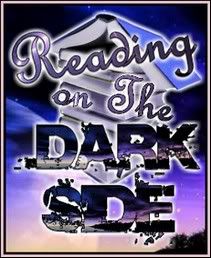 August 1st is Lammas! It is the beginning of the harvest seasons as the first fruits of the crop beg to be gathered. Lammas also known as Lughnasadh is also a moment to observe the waning summer as fall approaches. Depending on your individual spiritual path, there are many different ways you can celebrate Lammas, but typically the focus is on either the early harvest aspect, or the celebration of the Celtic god Lugh. It's the season when the first grains are ready to be harvested and threshed, when the apples and grapes are ripe for the plucking, and we're grateful for the food we have on our tables.
August 1st is Lammas! It is the beginning of the harvest seasons as the first fruits of the crop beg to be gathered. Lammas also known as Lughnasadh is also a moment to observe the waning summer as fall approaches. Depending on your individual spiritual path, there are many different ways you can celebrate Lammas, but typically the focus is on either the early harvest aspect, or the celebration of the Celtic god Lugh. It's the season when the first grains are ready to be harvested and threshed, when the apples and grapes are ripe for the plucking, and we're grateful for the food we have on our tables.Lugh or Lug (/luɣ/; modern Irish: Lú /lu:/) is an Irish deity represented in mythological texts as a hero and High King of the distant past. He is known by the epithets Lámhfhada (pronounced /'la:wad̪ˠə/, meaning "long arm" or "long hand"), for his skill with a spear or sling, Ildánach ("skilled in many arts"),Samhildánach ("Equally skilled in many arts"), Lonnbeimnech ("fierce striker" or perhaps "sword-shouter") and Macnia ("boy hero"), and by thematronymic mac Ethlenn or mac Ethnenn ("son of Ethliu or Ethniu"). He is a reflex of the pan-Celtic god Lugus, and his Welsh counterpart is Lleu Llaw Gyffes, "The Bright One with the Strong Hand".
Lugh's name has been interpreted as deriving from the Proto-Indo-European root *leuk-, "flashing light", and he is often surrounded by solar imagery, so from Victorian times he has often been considered a sun god, similar to the Greco-Roman Apollo though historically he is only ever equated with Mercury. He appears in folklore as a trickster, and in County Mayo thunderstorms were referred to as battles between Lugh and Balor, so he is sometimes considered a storm god: Alexei Kondratiev notes his epithet lonnbeimnech ("fierce striker") and concludes that "if his name has any relation to 'light' it more properly means 'lightning-flash' (as in Breton luc'h and Cornish lughes)". However, Breton and Cornish are Brythonic languages in which Proto-Celtic *k did undergo systematic sound changes into -gh- and -ch-.
 Lugh's mastery of all arts has led many to link him with the unnamed Gaulish god Julius Caesar identifies with Mercury, whom he describes as the "inventor of all the arts". Caesar describes the Gaulish Mercury as the most revered deity in Gaul, overseeing journeys and business transactions. Juliette Wood interprets Lugh's name as deriving from the Celtic root *lugios, "oath", and the Irish word lugh connotes ideas of "blasphemy, cussing, lies, bond, joint, binding oath", which strengthens the identification with Mercury, who was, among other attributes, a god of contracts.
Lugh's mastery of all arts has led many to link him with the unnamed Gaulish god Julius Caesar identifies with Mercury, whom he describes as the "inventor of all the arts". Caesar describes the Gaulish Mercury as the most revered deity in Gaul, overseeing journeys and business transactions. Juliette Wood interprets Lugh's name as deriving from the Celtic root *lugios, "oath", and the Irish word lugh connotes ideas of "blasphemy, cussing, lies, bond, joint, binding oath", which strengthens the identification with Mercury, who was, among other attributes, a god of contracts.Celebrate the harvesting of the grain at Lammas.
Image by Cultura/Henry Arden/Riser/Getty Images
In some Pagan traditions, Lammas is the time of year when the Goddess takes on the aspects of the Harvest Mother. The earth is fruitful and abundant, crops are bountiful, and livestock are fattening up for winter. However, the Harvest Mother knows that the cold months are coming, and so she encourages us to begin gathering up what we can. This is the season for harvesting corn and grain, so that we can bake bread to store and have seeds for next year's planting.
This ritual celebrates the beginning of the harvest season and the cycle of rebirth, and can be done by a solitary practitioner or adapted for a group or coven setting. Decorate your altar with symbols of the season -- sickles and scythes, garden goodies like ivy and grapes and corn, poppies, dried grains, and early autumn foods like apples. If you like, light some Lammas Rebirth incense.
Have a candle on your altar to represent the Harvest Mother -- choose something in orange, red or yellow. These colors not only represent the blaze of the summer sun, but also the coming changes of autumn. You'll also need a few stalks of wheat and an un-sliced loaf of bread (homemade is best, but if you can't manage, a store-bought loaf will do). A goblet of ritual wine is optional.
If your tradition requires you to cast a circle, do so now.
Light the candle, and say:
The Wheel of the Year has turned once more,
and the harvest will soon be upon us.
We have food on our tables, and
the soil is fertile.
Nature's bounty, the gift of the earth,
gives us reasons to be thankful.
Mother of the Harvest, with your sickle and basket,
bless me with abundance and plenty.
 Hold the stalks of wheat before you, and think about what they symbolize: the power of the earth, the coming winter, the necessity of planning ahead. What do you need help planning right now? Are there sacrifices you should be making in the present that will be reaped in the future?
Hold the stalks of wheat before you, and think about what they symbolize: the power of the earth, the coming winter, the necessity of planning ahead. What do you need help planning right now? Are there sacrifices you should be making in the present that will be reaped in the future? Rub the stalks between your fingers so a few grains of wheat fall upon the altar. Scatter them on the ground as a gift to the earth. If you're inside, leave them on the altar for now -- you can always take them outside later. Say:
The power of the Harvest is within me.
As the seed falls to the earth and is reborn each year,
I too grow as the seasons change.
As the grain takes root in the fertile soil,
I too will find my roots and develop.
As the smallest seed blooms into a mighty stalk,
I too will bloom where I landed.
As the wheat is harvested and saved for winter,
I too will set aside that which I can use later.
Tear off a piece of the bread. If you're performing this ritual as a group, pass the loaf around the circle so that each person present can take off a small chunk of bread. As each person passes the bread, they should say:
I pass to you this gift of the first harvest.
Everyone eats their bread together. If you have ritual wine, pass it around the circle for people to wash the bread down. Once everyone has finished their bread, take a moment to meditate on the cycle of rebirth and how it applies to your own life - physically, emotionally, spiritually. When you are ready, if you have cast a circle, close it or dismiss the quarters at this time. Otherwise, simply end the ritual in the manner of your tradition.
What You Need:
- A candle to represent the Harvest Mother
- Stalks of wheat
- A loaf of bread
- Ritual wine (optional)





No comments:
Post a Comment